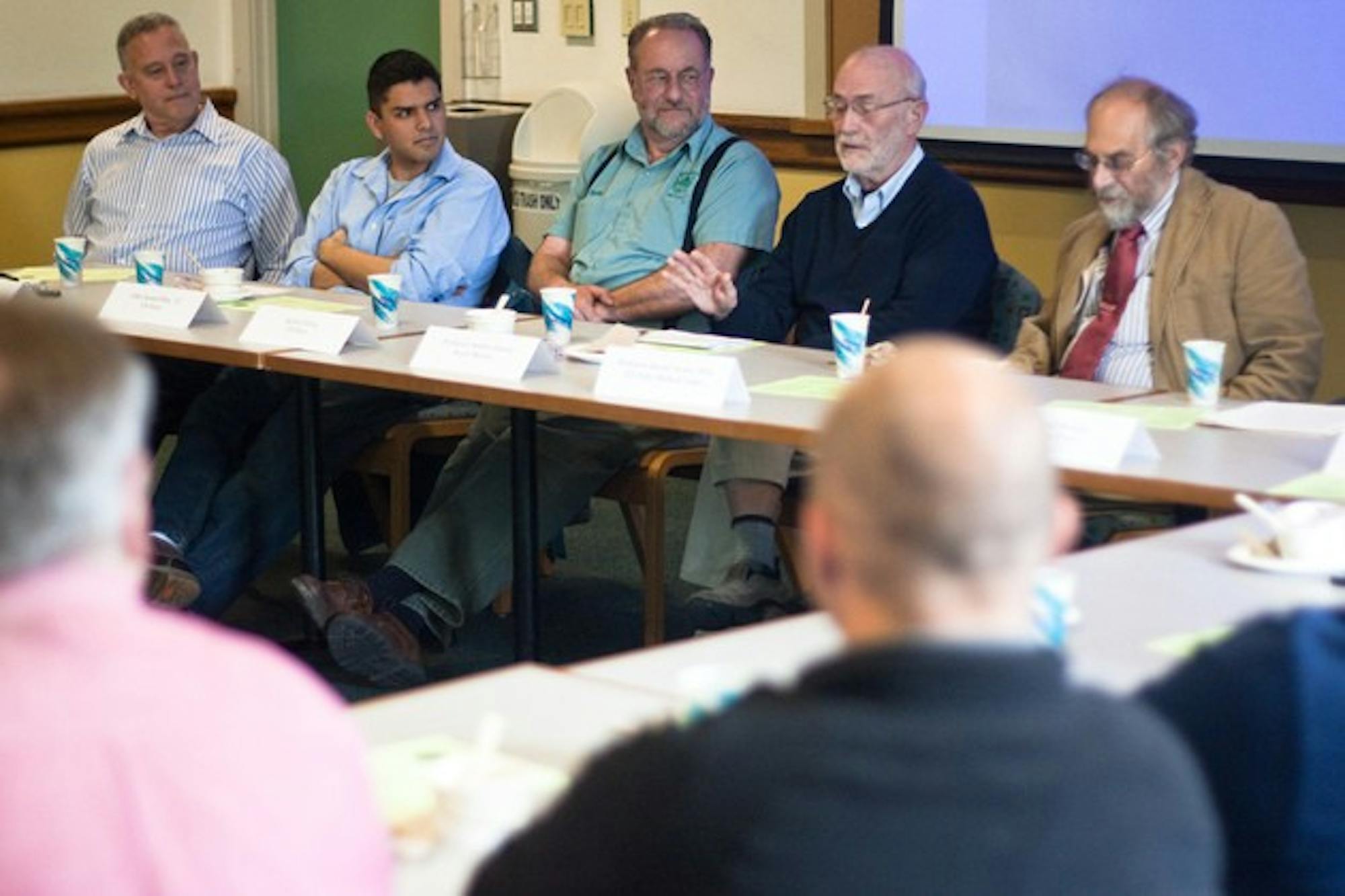The panel was moderated by Rev. Byron Breese, a retired U.S. Air Force chaplain, and included veterans of the two wars in Iraq and the Vietnam war.
Breese noted that, although veterans make up a relatively small proportion of the population, the military touches the lives of every person who depends on servicemen and women.
"It's not just the people who wear the uniform, it's the family that goes along with them," he said.
John Around Him '12, who drove a tank for the U.S. Army in the initial invasion of Iraq, said he decided to join the military because he saw it as a path to a college education and as a way to get off the Pine Ridge Indian Reservation in South Dakota.
Around Him said he was originally scheduled to leave for basic training on Sept. 11, 2001.
"Needless to say, I pretty much knew I was going to war," he said.
Around Him said that although he developed a great feeling of camaraderie with his fellow soldiers, the situation in Iraq was a constant source of physical, mental and emotional stress.
"Your body is sort of like in an endless vice, and you're constantly pressured all the time," he said.
Keith Cutting, who manages the College's energy security system, recalled how growing up in a small farming town in northwestern Vermont prepared him for military service. The town's culture taught him that it was his duty to serve in the military in order to protect democracy, he said.
After graduating from high school, Cutting immediately joined the Navy, and was assigned to be a boiler technician, a position that he said clashed with his romantic notions of naval life. Instead of giving up hope, Cutting said he decided to develop his technical skills, going to "every military school [he] could get into."
Cutting served on a carrier that launched air assaults during the Vietnam War. The action on the carrier was so loud that "nobody got sleep for 15 or 20 days," he said.
He later became an instructor on a destroyer, and retired in 1974. Soon after, he landed a job working at Dartmouth's power plant.
Education department chair Andrew Garrod recalled his naivete and excitement during his time as a young officer in the British Royal Marines, fighting against Greek and Turkish "terrorists" on Cyprus.
"Cyprus was a British island," he said. "Of course it was, at the time most of the world was."
Garrod said he once believed he and his men could earn glory by capturing the "terrorists," but that he later realized his enemies were actually patriots defending their homes.
He said his later work in education made him more understanding of young soldiers' bravado and more suspicious of the politicians who send them into harm's way.
The only female member of the panel was Meagan Cray, who is an employee of Dartmouth Dining Services and is currently working toward a bachelor's degree in elementary education. Cray enlisted in the Air Force after graduating high school, but was medically discharged after being seriously injured during training.
Cray said she was not surprised there were so few other female veterans at Darmouth.
"The men don't think that you can do the same things they can," she said.




